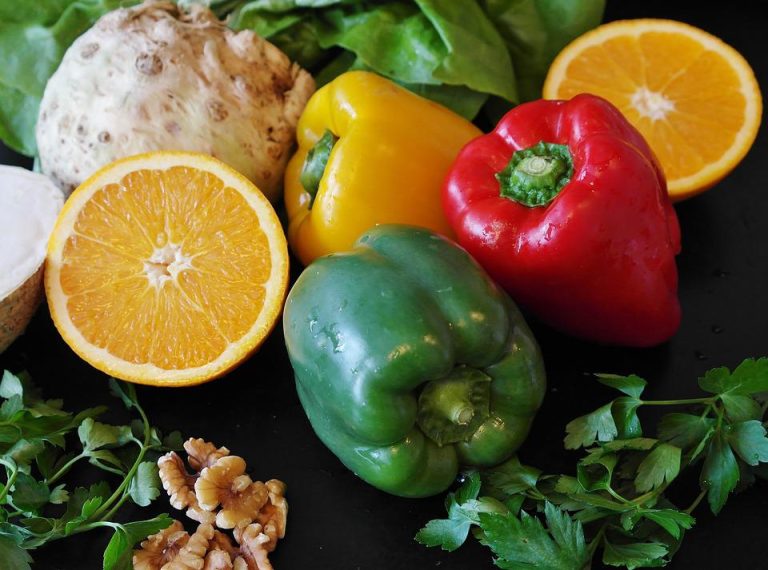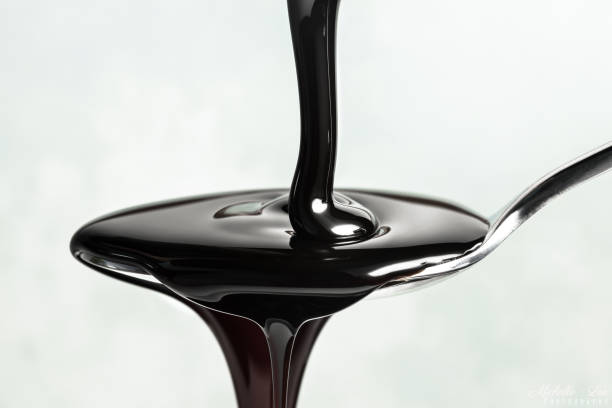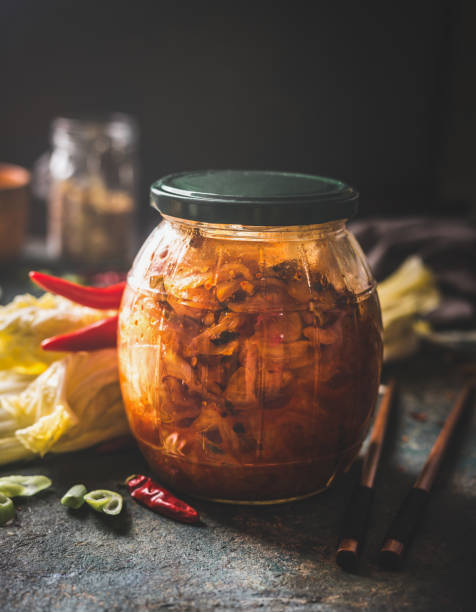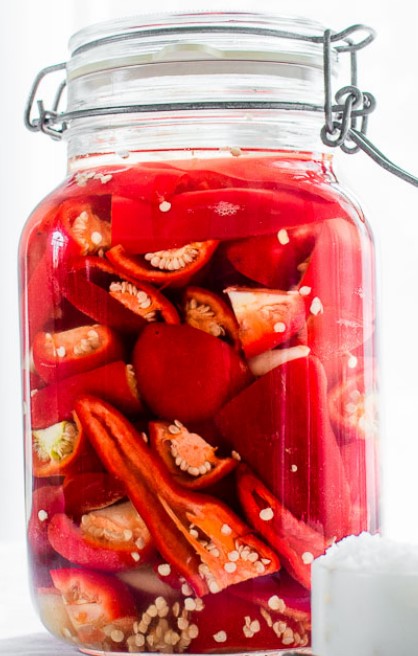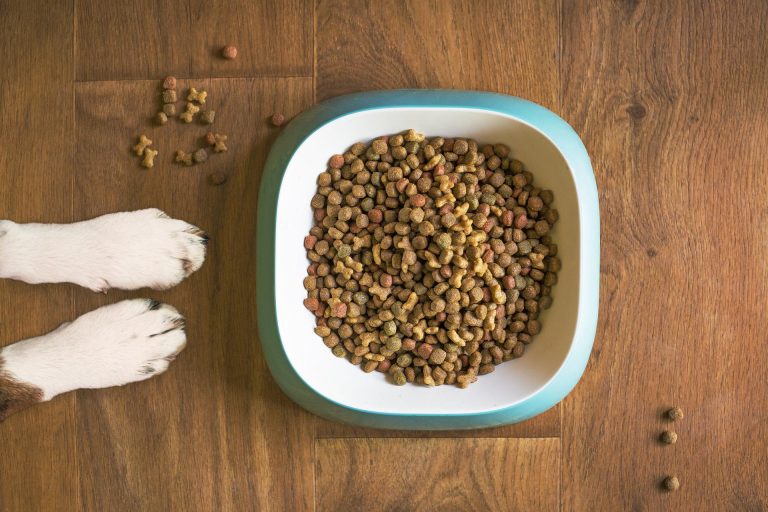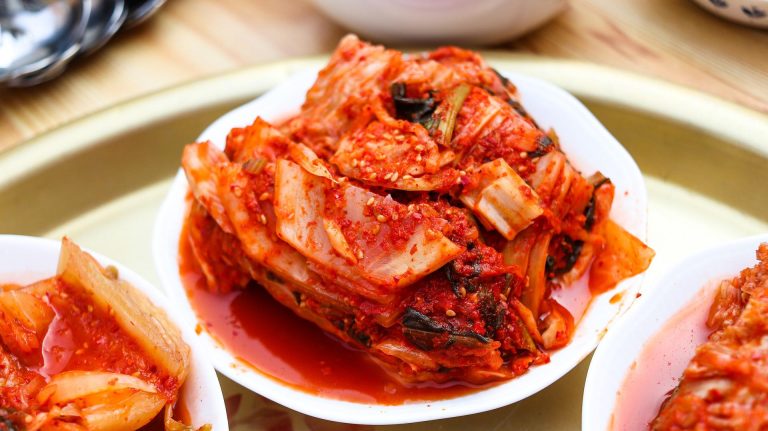Why Is My Kimchi Too Watery?
It is beneficial for your health to have homemade kimchi. It’s not easy to get it right every time, even though it’s not difficult to make.
Certain things can go wrong in the process, such as ending up with kimchi that has too much water.
Your Kimchi was fermented too long and is too salty, resulting in the sour taste.
In addition, fermentation also breaks down the protein in the cabbage and turns it into a liquid.
Kimchi requires salt to maintain its texture and flavor. Salt draws moisture out of the vegetables, resulting in more water.
You have come to the right place if this sounds familiar and your kimchi is too watery.
In this article, I will give you information on what can make your kimchi too watery, as well as ways to fix the problem.
Table of Contents
Why Is Kimchi So Watery?
Several things can make your kimchi too watery. We are going to take a look at them.
Not Enough Salt
Adding salt to the cabbage and other vegetables that you want to include is one of the most important things you need to do when preparing kimchi for fermentation.
The purpose of this is to remove the water from the vegetables.
If you don’t add enough salt to enable the dehydration process, your kimchi will turn out watery.
If there isn’t enough salt, water will remain in the vegetables, making your kimchi watery and mushy.
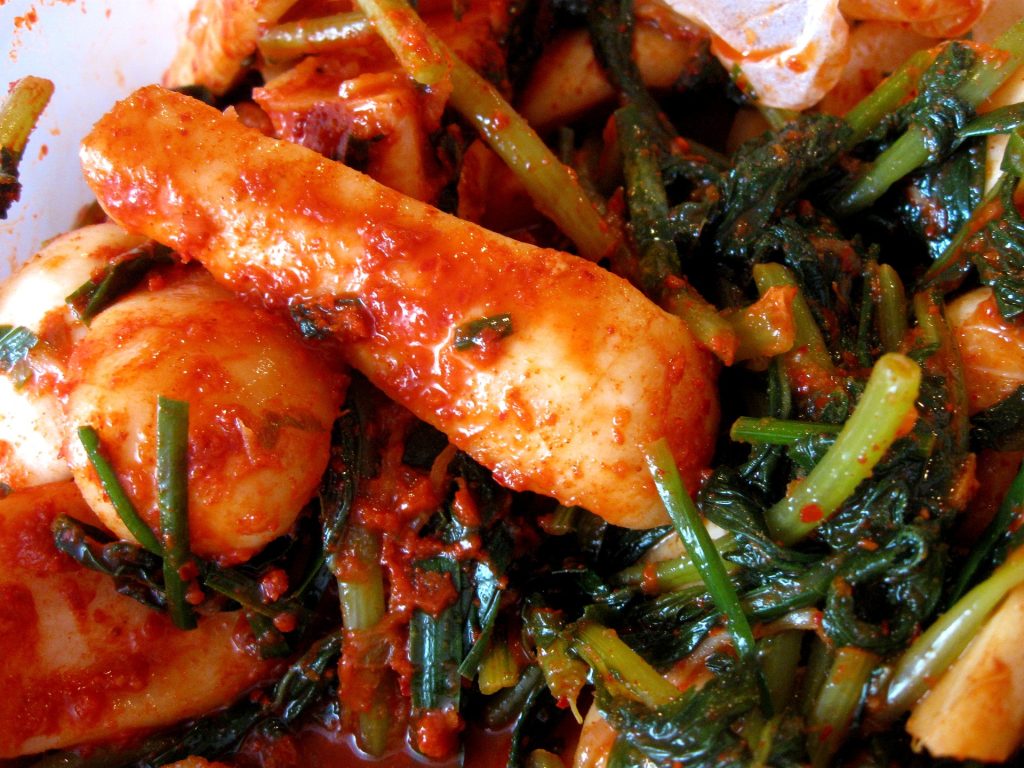
Salt Wasn’t Spread Evenly
When adding salt, it is important to spread it evenly so that the vegetables are covered in salt.
Some parts of your vegetables will be dehydrated and some water will remain inside them if the salt isn’t distributed evenly.
If there is too much water in your vegetables, it will cause the kimchi to be watery and mushy. Salt should be placed on each side of the vegetables and between the leaves.
You Didn’t Wait for Enough
You should wait at least a few hours after adding salt to your vegetables to make sure you get the right amount of water.
If you do not wait long enough, you will interrupt the dehydration process, and there will still be some water in the vegetables.
You Soaked the Vegetables
You should rinse your vegetables after they are salted. Some people are holding vegetables in their hands.
However, this might make your vegetables watery. It is possible to rinse the salt from your vegetables without making them watery or soggy.
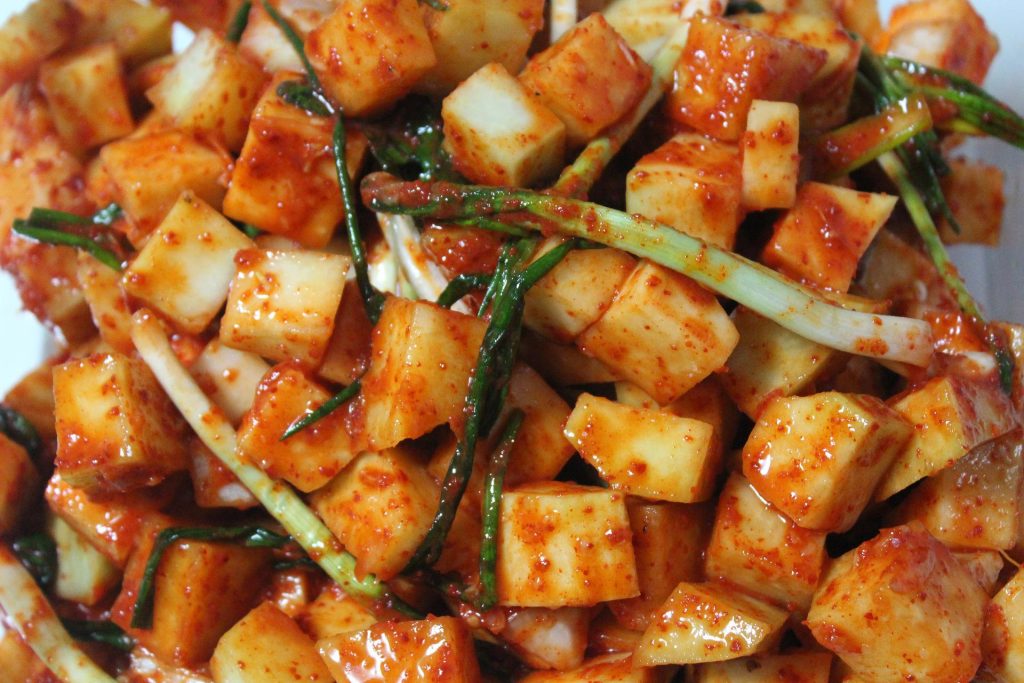
You Used Hot Water
If you use hot water when rinsing out your vegetables, it could make your kimchi too watery. This can leave your cabbage slimy, which is something you don’t want to happen.
You Didn’t Squeeze Out the Total Water
After rinsing and salting your vegetables, you should squeeze them to get rid of any residual water.
If you skip this step, you can make your kimchi watery and make it taste different. It’s always a good idea to squeeze out as much water as you can.
Is Kimchi Watery?
It is not supposed to be watery in traditional kimchi. Salt is added to the vegetables before the process of fermentation.
Salt helps preserve vegetables by removing water from them. The purpose of this process is to make sure that kimchi doesn’t get watery.
How Can I Fix Watery Kimchi?
If your vegetables are too watery, try squeezing the water out or adding more salt to the water. If you want to make sure the vegetables are dry, leave them to dry and then flip them.
How Can I Prevent Watery Kimchi?
No one would want watery kimchi. Different approaches and techniques can be used to avoid this problem.
Add Enough Salt
It’s important to add salt to get water from your vegetables before they ferment. People don’t use enough salt because they’re afraid their kimchi will be too salty.
You need to keep in mind that you are going to rinse out the vegetables before mixing them with other ingredients.
Your kimchi won’t be as salty because the extra salt will be washed away.
If you don’t add enough salt, your vegetables will remain watery, and you won’t be able to squeeze them out properly.
Spread the Salt
If you insist on one side of the vegetables, it will cause your kimchi to be too watery. Why are you doing this?
The salt won’t reach all parts of the vegetables and the extra water won’t be used. It is the only way to dehydrate your vegetables so make sure everything is covered.
Wait
You have to be patient if you want to make sure the vegetables are doing their job after you salted them.
The recommended time for rinsing your veggies is six hours, but you should wait at least three hours.
After six hours, all the water will be drawn out, and the salt will penetrate the vegetables.
Depending on how salty you like your kimchi, the waiting time can be very long. You should wait around three hours if you don’t like it salty.
Don’t Submerge the Vegetables
By not submerging the veggies in water, you will ensure that they don’t retain the extra water.
They should be washed out instead. It won’t make your vegetables watery or mushy, but it will remove the salt from your body.
Use Cold Water
If you use hot water to rinse your vegetables, they will remain slimy. Coldwater is a simple way to prevent this from happening.
Squeeze Out the Excess Water
The next step is to squeeze out the water after rinsing out the vegetables. You have the option of using your hands or tongs.
It is recommended that you wear gloves when you use your hands. Some people make sure that every drop of water is squeezed out by squeezing cabbage.
Conclusion
It is not uncommon to end up with kimchi that is too watery if you like making it. If you don’t pay enough attention, a lot of things can make your kimchi too watery.
I hope that I have shown you possible causes and solutions to the problem. It can be hard to make the perfect kimchi, but it is all about practice.
If only one batch wasn’t up to scratch, don’t beat yourself up. If you have more experience, you will be able to make great kimchi with your eyes closed.

Foodie and a passionate cook, I am here to share all of what I know about cooking, kitchen, and food prepping.
Follow me for delicious and healthy recipes.

